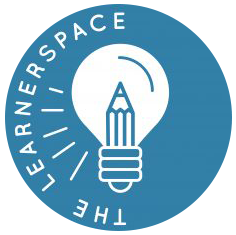The School of the Future Toolkit is a series of workshops that are customized to deliver high-quality, state-of-the-art strategies that every school can capitalize for positive change. This ample menu of educational interventions can be articulated in any order as best suits each school’s particular needs.
Each one of our workshops and presentations embodies a fundamental principle: that the adults engage in the same type of learning as the pedagogy that intends to be fostered in their schools. It is only through hands-on experiences that replicate student learning that educators can truly learn in a way that allows them also to reflect on the effectiveness of new pedagogies.
The Drivers
• A foundational thought process that analyzes the latest trends and drivers for the future of education, and, through a series of technology enriched collaborative interactivities, helps leadership teams and staff gradually coalesce into a serious of principles and drivers that can become a frame of reference in specific guidelines for school transformation.
By engaging school stakeholders in a collaborative process that actively involves them in determining the major themes that will serve as the pathways for developing a renewed pedagogy, we ensure that school teams build capacity for successful implementation.
Design Learning
• The Design Learning process adds to the design paradigm by means of supporting the creativity and innovation process through curriculum instances that explicitly foster the development of skills for enquiry and lifelong learning.
Participants will experience the Design Learning process, as a way to explore how design and learning can be successfully integrated in the classroom setting. This tech intensive BYOD presentation also immerses participants in a pedagogical setting that embodies many of the drivers of the new learning paradigm, thus allowing them also to reflect on the effectiveness and possibilities of a 21st Century learning environment.
At the workshop, participants engage in an abbreviated solution of a real-life design problem through the Design Learning protocol. All activities will be recorded on an online multiuser blog, so that participants can later refer to it, both as a reference set of materials to take to their own schools or districts, and also serving as a platform for a professional learning community where workshop attendees can continue an ongoing dialogue and learning process.
Project Based Learning
• Project-based learning has become one of the most ubiquitous pedagogical manifestations of the school of the future, based on how it allows students to express their creativity, collaborate to solve interdisciplinary problems, and learn by doing, an all-time axiom for successful learning.
However, PBL can only become effective when projects challenge students to learn deeply, in an interdisciplinary manner, and allows them to demonstrate their learning through higher order skills. Project management is also absolutely crucial for teachers to ensure that effective learning takes place and that students assume collaborative roles in the hands-on learning process.
The Learnerspace´s Project Based Learning workshop takes participants through the full development of a project, through an online tech enriched protocol that provides a ready to use framework for teachers to implement PBL in their classrooms.
Assessment 2.0
• Assessment should be at the heart of every school transformation. Within a completely redefined knowledge paradigm, and changes in pedagogy that have become self-evident, there is a dire need to reform assessment practices to suit a new set of skills and expectations. The number of students with learning difficulties in all schools is also a reminder that the traditional methods of assessment are impacting students on their self-esteem and ability to learn.
In a world that values creativity, higher order thinking skills, the ability to collaborate, lifelong learning and innovation, assessment methods must be redesigned so as to truly evaluate those desired outcomes and become what they should be, an essential element in the learning process.
Our interactive Assessment 2.0 Workshop starts from real-life classroom assessment instruments brought by teachers themselves and provides hands-on tools to, literally, reassess them for a new school.
Technology game changers
• Technology has been on the verge of revolutionizing education for the last 30 years, but such initiatives have been largely ineffective due to, mostly, the fact that many of these well-intentioned efforts have resulted in the digitization of the traditional model, and technology being used in classrooms to, unintendedly, further enhance the teacher centered model.
For technology to become a true positive disruption in education, it needs to be leveraged in a way that enhances learning and results in engaging, fun and interactive learning, through games, simulations, student participation apps, artificial intelligence and several other applications that will significantly change the educational landscape in the near future.
This highly interactive, hands-on, BYOD workshop allows teachers to experience first-hand state-of-the-art software and technology tools that can potentially increase student engagement and allow them to gain significantly more relevant skills in the current and future context.
An important component in the workshop is related to analyzing the ethical impact of the technology developments, such as artificial intelligence and big data, that will dramatically influence our daily lives.
Planning by Design
• What more direct and better way to applying design to the classroom than designing your own yearly planning? Our Planning by Design workshop exemplifies the Design Learning protocol using a step-by-step rigorous online research and design protocol, taking as a real-life problem every teacher´s yearly planning.
Working from their own school documentation, the workshop allows teachers to intervene their pedagogy through this design protocol, taking their yearly planning and using it as a catalyst to learn this how design can be a truly significant incarnation of many of the principles of the future of learning.

